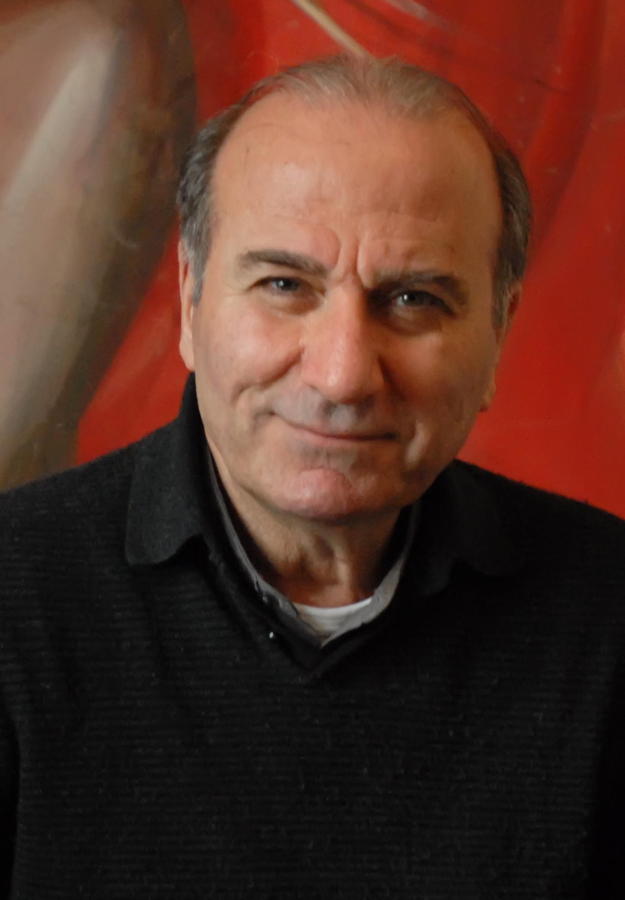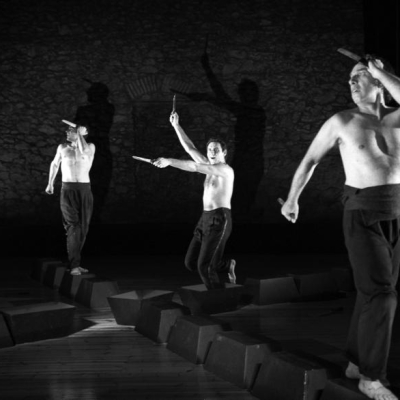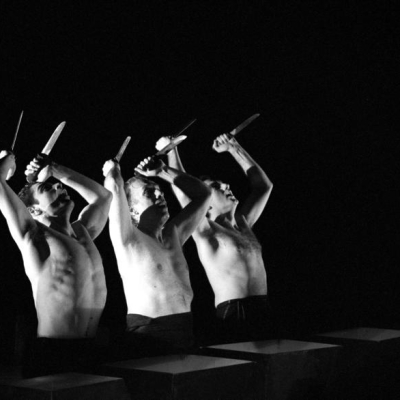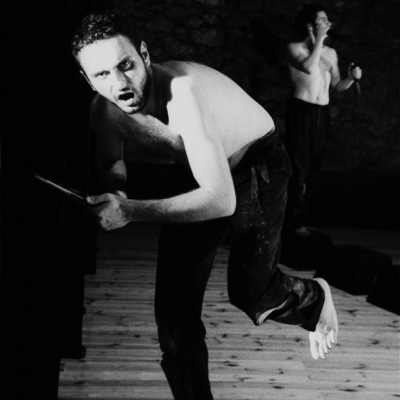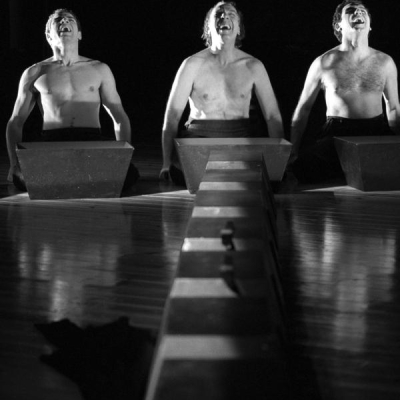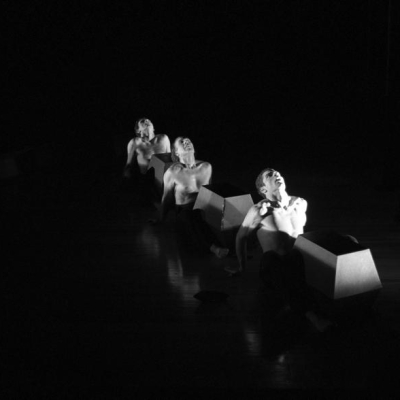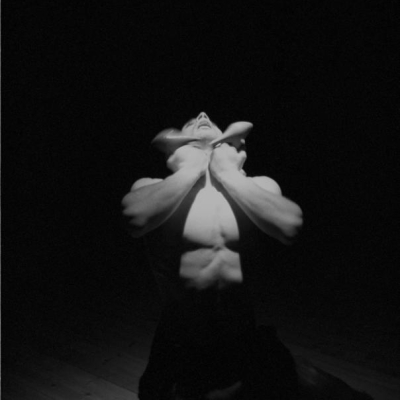AJAX, THE MADNESS 16
Scenic composition based upon Ajax by Sophocles
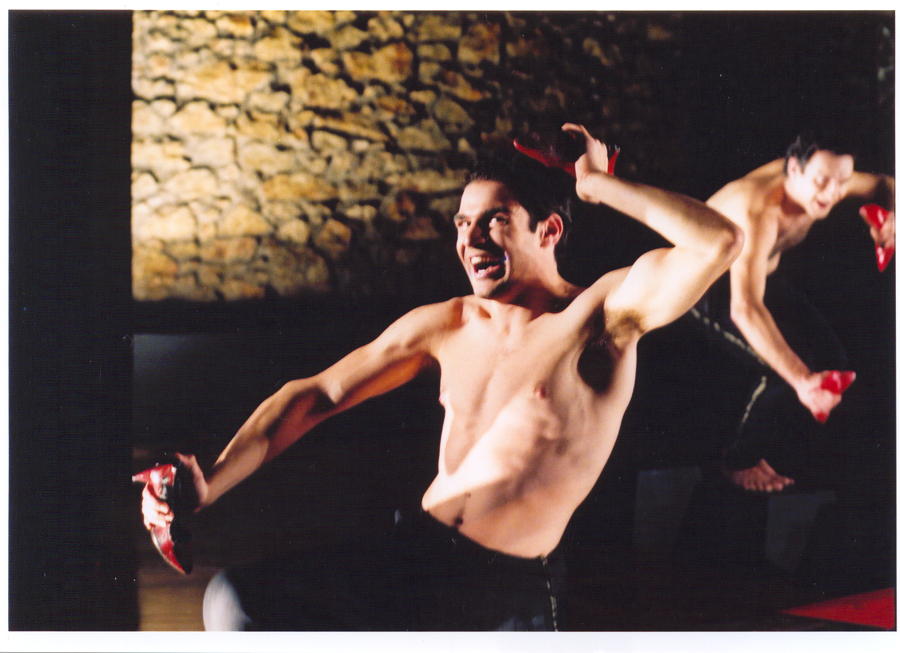
Attis Theatre – Athens, Greece
Director: Theodoros Terzopoulos
Performed in Greek with Hungarian and English subtitles.
55 minutes, without breaks.
Ajax, humiliated and furious by the wrong judgement of the Greek Court, which decided to donate Achilles’ weapons to odysseus instead of him, tried to take revenge on those who were unfair and insulted him. Goddess Athene unsettled his mind and Ajax, in a condition of madness, assaulted and slaughtered the Greek herds believing that they were his enemies Atreides. When he regained consciousness and realized his actions, he felt disgraced and humiliated and decided to commit suicide. Despite the efforts of his family and the chorus of Salaminian sailors,hewentalonetotheshoreofTroyandfellontohissword.Whilehisfamilywasmourning,Atreides’kings,MenelausandAgamemnon,forbadeAjax’bodytoreceiveaproperburial. However, odysseus intervened and convinced them to respect their dead enemy and allow him an honorable burial.
The performance Ajax, the madness is a result of Attis’ work and research upon some of the major topics of the tragedy Ajax by Sophocles, such as betrayal, wrath, madness, vengeance, suicide and guilt, an element that is absent from contemporary world.
The performance does not develop the whole text of the ancient tragedy Ajax by Sophocles, but those fragments narrating the murders that Ajax committed in a condition of unrighteous wrath. The messenger describes with lurid details how Ajax, blinded by his wrath and madness, got out of his tent, assaulted and slaughtered the animals, believing that they were men. The messenger’s narration revokes the image of the honorable hero and prepares the entrance of a bloodstained Ajax, while the chorus is trying, with his desperate questions, to understand the incomprehensible.
Színészek / Actors:
Tasos Dimas, Meletis Ilias, Savvas Stroumpos
Scenic composition, scenic design, costume design: Theodoros Terzopoulos
Lights: Theodoros Terzopoulos, Konstantinos Bethanis
Technical manager: Konstantinos Bethanis
Stage manager: Charalampos Terzopoulos
Stage assistant: Dimitris Terzopoulos
Production manager, surtitles: Maria Vogiatzi
Photos: Johanna Weber


